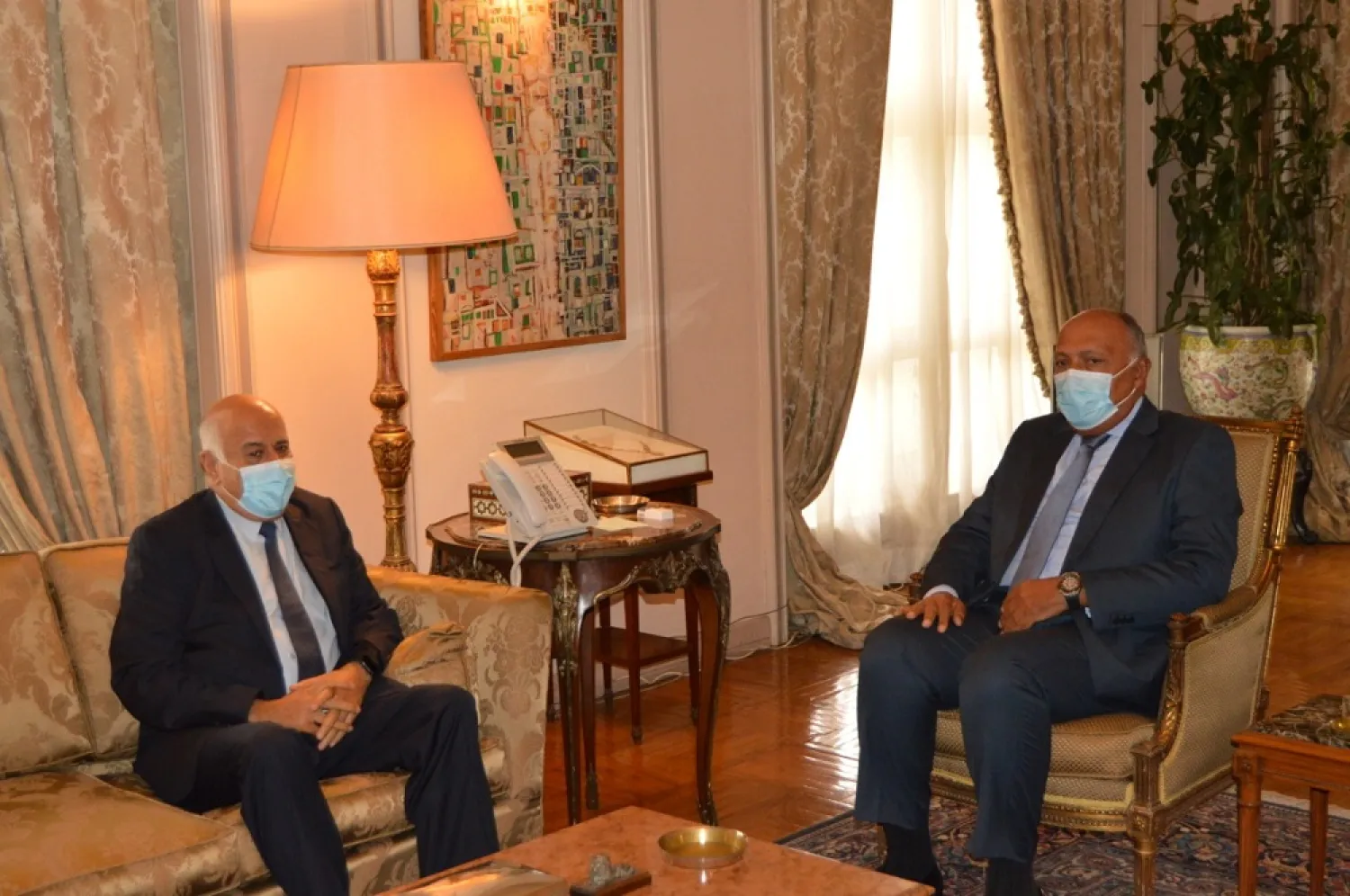A Fatah delegation discussed in Egypt the developments of the Palestinian reconciliation process, stressing Cairo’s “pivotal” role in achieving it, days after it concluded talks with Hamas in Turkey and Qatar.
Egyptian Foreign Minister Sameh Shoukry received Fatah Secretary-General Jibril Rajoub, and committee member Rawhi Fattouh, at the Egyptian Foreign Ministry.
A statement issued by the ministry reaffirmed Egypt's steadfast stance on the Palestinian cause.
It reiterated Egypt's unwavering support for the legitimate rights of the Palestinian people aimed at establishing an independent Palestinian state based on the 1967 borders with East Jerusalem as its capital in accordance with international resolutions.
The Ministry affirmed Egypt's support for all efforts to achieve stability, peace and security.
Spokesperson for the Ministry of Foreign Affairs, Ahmed Hafez said in a statement that the officials conveyed Palestinian appreciation for Egypt’s unwavering support.
They briefed Shoukry on the latest developments and efforts to unify Palestinians, emphasizing the centrality of Egypt’s role in achieving the reconciliation.
Shoukry, in turn, stressed Egypt’s support to the Palestinian leadership and people during these delicate circumstances.
Hamas politburo member Hossam Badran had clarified that the intra-Palestinian talks were hosted by Turkey, and not under its auspices.
He expressed his appreciation and respect to all the sponsors of the previous dialogues, adding that Palestinians are keen on maintaining good relations with all Arab and Islamic countries.
Most Arab countries have welcomed the Palestinian reconciliation and there was no official objection from any state, according to Badran.
He reported that the aim is to hold elections, followed by the formation of a national unity government that includes all parties.
The official added that the elections are the first step towards forming the new National Council.
Badran stressed that the Fatah-Hamas talks are not a substitute for a general national dialogue, indicating that any bilateral understanding can’t be implemented without the approval of all Palestinian factions.









